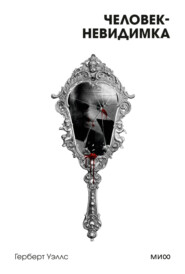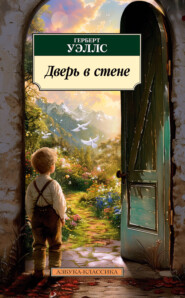По всем вопросам обращайтесь на: info@litportal.ru
(©) 2003-2024.
✖
Mr. Britling Sees It Through
Настройки чтения
Размер шрифта
Высота строк
Поля
"If there was only one language in all the world, none of such things would happen," Herr Heinrich declared. "There would be no English, no Germans, no Russians."
"Just Esperantists," said Teddy.
"Or Idoists," said Herr Heinrich. "I am not convinced of which. In some ways Ido is much better."
"Perhaps there would have to be a war between Ido and Esperanto to settle it," said Teddy.
"Who shall we play skat with when you have gone?" asked Mrs. Britling.
"All this morning," said Herr Heinrich, expanding in the warmth of sympathy, "I have been trying to pack and I have been unable to pack. My mind is too greatly disordered. I have been told not to bring much luggage. Mrs. Britling, please."
Mrs. Britling became attentive.
"If I could leave much of my luggage, my clothes, some of them, and particularly my violin, it would be much more to my convenience. I do not care to be mobilised with my violin. There may be much crowding. Then I would but just take my rucksack…"
"If you will leave your things packed up."
"And afterwards they could be sent."
But he did not leave them packed up. The taxi-cab, to order which he had gone to the junction in the morning on Teddy's complaisant machine, came presently to carry him off, and the whole family and the first contingent of the usual hockey players gathered about it to see him off. The elder boy of the two juniors put a distended rucksack upon the seat. Herr Heinrich then shook hands with every one.
"Write and tell us how you get on," cried Mrs. Britling.
"But if England also makes war!"
"Write to Reynolds – let me give you his address; he is my agent in New York," said Mr. Britling, and wrote it down.
"We'll come to the village corner with you, Herr Heinrich," cried the boys.
"No," said Herr Heinrich, sitting down into the automobile, "I will part with you altogether. It is too much…"
"Auf Wiedersehen!" cried Mr. Britling. "Remember, whatever happens there will be peace at last!"
"Then why not at the beginning?" Herr Heinrich demanded with a reasonable exasperation and repeated his maturer verdict on the whole European situation; "Verdammte Bummelei!"
"Go," said Mr. Britling to the taxi driver.
"Auf Wiedersehen, Herr Heinrich!"
"Auf Wiedersehen!"
"Good-bye, Herr Heinrich!"
"Good luck, Herr Heinrich!"
The taxi started with a whir, and Herr Heinrich passed out of the gates and along the same hungry road that had so recently consumed Mr. Direck. "Give him a last send-off," cried Teddy. "One, Two, Three! Auf Wiedersehen!"
The voices, gruff and shrill, sounded raggedly together. The dog-rose hedge cut off the sight of the little face. Then the pink head bobbed up again. He was standing up and waving the panama hat. Careless of sunstroke…
Then Herr Heinrich had gone altogether…
"Well," said Mr. Britling, turning away.
"I do hope they won't hurt him," said a visitor.
"Oh, they won't put a youngster like that in the fighting line," said Mr. Britling. "He's had no training yet. And he has to wear glasses. How can he shoot? They'll make a clerk of him."
"He hasn't packed at all," said Mrs. Britling to her husband. "Just come up for an instant and peep at his room. It's – touching."
It was touching.
It was more than touching; in its minute, absurd way it was symbolical and prophetic, it was the miniature of one small life uprooted.
The door stood wide open, as he had left it open, careless of all the little jealousies and privacies of occupation and ownership. Even the windows were wide open as though he had needed air; he who had always so sedulously shut his windows since first he came to England. Across the empty fireplace stretched the great bough of oak he had brought in for Billy, but now its twigs and leaves had wilted, and many had broken off and fallen on the floor. Billy's cage stood empty upon a little table in the corner of the room. Instead of packing, the young man had evidently paced up and down in a state of emotional elaboration; the bed was disordered as though he had several times flung himself upon it, and his books had been thrown about the room despairfully. He had made some little commencements of packing in a borrowed cardboard box. The violin lay as if it lay in state upon the chest of drawers, the drawers were all partially open, and in the middle of the floor sprawled a pitiful shirt of blue, dropped there, the most flattened and broken-hearted of garments. The fireplace contained an unsuccessful pencil sketch of a girl's face, torn across…
Husband and wife regarded the abandoned room in silence for a time, and when Mr. Britling spoke he lowered his voice.
"I don't see Billy," he said.
"Perhaps he has gone out of the window," said Mrs. Britling also in a hushed undertone…
"Well," said Mr. Britling abruptly and loudly, turning away from this first intimation of coming desolations, "let us go down to our hockey! He had to go, you know. And Billy will probably come back again when he begins to feel hungry…"
§ 11
Monday was a public holiday, the First Monday in August, and the day consecrated by long-established custom to the Matching's Easy Flower Show in Claverings Park. The day was to live in Mr. Britling's memory with a harsh brightness like the brightness of that sunshine one sees at times at the edge of a thunderstorm. There were tents with the exhibits, and a tent for "Popular Refreshments," there was a gorgeous gold and yellow steam roundabout with motor-cars and horses, and another in green and silver with wonderfully undulating ostriches and lions, and each had an organ that went by steam; there were cocoanut shies and many ingenious prize-giving shooting and dart-throwing and ring-throwing stalls, each displaying a marvellous array of crockery, clocks, metal ornaments, and suchlike rewards. There was a race of gas balloons, each with a postcard attached to it begging the finder to say where it descended, and you could get a balloon for a shilling and have a chance of winning various impressive and embarrassing prizes if your balloon went far enough – fish carvers, a silver-handled walking-stick, a bog-oak gramophone-record cabinet, and things like that. And by a special gate one could go for sixpence into the Claverings gardens, and the sixpence would be doubled by Lady Homartyn and devoted next winter to the Matching's Easy coal club. And Mr. Britling went through all the shows with his boys, and finally left them with a shilling each and his blessing and paid his sixpence for the gardens and made his way as he had promised, to have tea with Lady Homartyn.
The morning papers had arrived late, and he had been reading them and re-reading them and musing over them intermittently until his family had insisted upon his coming out to the festivities. They said that if for no other reason he must come to witness Aunt Wilshire's extraordinary skill at the cocoanut shy. She could beat everybody. Well, one must not miss a thing like that. The headlines proclaimed, "The Great Powers at War; France Invaded by Germany; Germany invaded by Russia; 100,000 Germans march into Luxemburg; Can England Abstain? Fifty Million Loan to be Issued." And Germany had not only violated the Treaty of London but she had seized a British ship in the Kiel Canal… The roundabouts were very busy and windily melodious, and the shooting gallery kept popping and jingling as people shot and broke bottles, and the voices of the young men and women inviting the crowd to try their luck at this and that rang loud and clear. Teddy and Letty and Cissie and Hugh were developing a quite disconcerting skill at the dart-throwing, and were bent upon compiling a complete tea-set for the Teddy cottage out of their winnings. There was a score of automobiles and a number of traps and gigs about the entrance to the portion of the park that had been railed off for the festival, the small Britling boys had met some nursery visitors from Claverings House and were busy displaying skill and calm upon the roundabout ostriches, and less than four hundred miles away with a front that reached from Nancy to Liège more than a million and a quarter of grey-clad men, the greatest and best-equipped host the world had ever seen, were pouring westward to take Paris, grip and paralyse France, seize the Channel ports, invade England, and make the German Empire the master-state of the earth. Their equipment was a marvel of foresight and scientific organisation, from the motor kitchens that rumbled in their wake to the telescopic sights of the sharp-shooters, the innumerable machine-guns of the infantry, the supply of entrenching material, the preparations already made in the invaded country…
"Let's try at the other place for the sugar-basin!" said Teddy, hurrying past. "Don't get two sugar-basins," said Cissie breathless in pursuit. "Hugh is trying for a sugar-basin at the other place."
Then Mr. Britling heard a bellicose note.
"Let's have a go at the bottles," said a cheerful young farmer. "Ought to keep up our shooting, these warlike times…"
Mr. Britling ran against Hickson from the village inn and learnt that he was disturbed about his son being called up as a reservist. "Just when he was settling down here. It seems a pity they couldn't leave him for a bit."
"'Tis a noosence," said Hickson, "but anyhow, they give first prize to his radishes. He'll be glad to hear they give first prize to his radishes. Do you think, Sir, there's very much probability of this war? It do seem to be beginning like."
"It looks more like beginning than it has ever done," said Mr. Britling. "It's a foolish business."
"I suppose if they start in on us we got to hit back at them," said Mr. Hickson. "Postman – he's got his papers too…"
Mr. Britling made his way through the drifting throng towards the little wicket that led into the Gardens…
He was swung round suddenly by a loud bang.
It was the gun proclaiming the start of the balloon race.

















